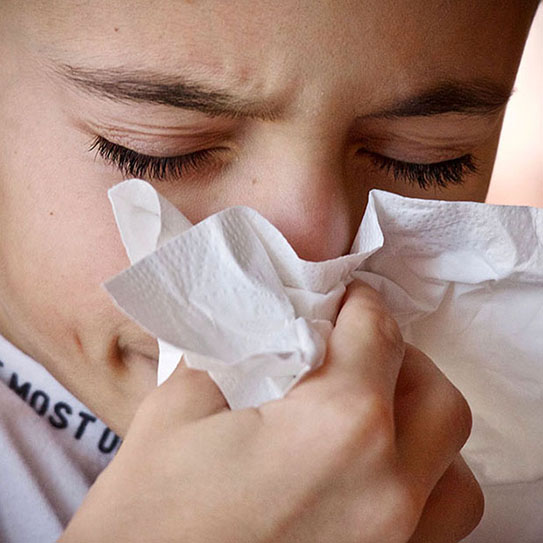
COMING DOWN WITH the flu is never any fun, but it’s still no time to let up on your oral hygiene routine. The same applies if you get a cold. With flu and cold season starting up, we thought this was a good time to share some tips for maintaining good oral health through one of these common illnesses.
Brushing and Flossing Can Help You Feel Better
As well as you can while sick, try to remember to brush and floss as usual. It’s not just about the comfort of maintaining some part of your normal routine, or about getting some small sense of accomplishment out of it — no, brushing and flossing can actually make you feel better!
Keeping your mouth as clean as possible is a real boost to your overall sense of well-being. A clean mouth helps you feel rejuvenated and refreshed, so don’t let the simple habits of brushing and flossing fall by the wayside while you’re sick. Getting rid of oral bacteria can only help while you’re fighting a cold or the flu!
A Stuffy Nose Leads to Dry Mouth
If you can’t breathe out of your nose because of congestion, then obviously your only option is to breathe through your mouth. That’s never great for oral health, because it tends to dry things out. We need our saliva to fend off bacteria and wash away food debris, and dry mouth significantly increases the risk of tooth decay.
Sometimes the medicine we take to help with a cold or the flu (such as antihistamines, pain relievers, and decongestants) can actually make the dry mouth situation worse. Keep this in mind and make sure to drink plenty of water and, when possible, breathe through your nose.
Congestion and Bad Breath
Have you ever noticed a snotty taste when you have a cold? Well, it can also be a smell, in the form of bad breath. This happens because of post nasal drip, or excess mucus leaking down the back of the throat. It’s easy for bacteria to multiply in this situation, which leads to unpleasant smells — yet another reason why brushing and flossing are just as important when we’re sick!
Cut Down on Sugar
The bad bacteria in our mouths love when we eat sugar, even when it comes in the form of a cough drop. Sucking on a sugary cough drop is just as bad for our teeth as sucking on a hard candy, which is why it’s a good idea to choose a sugar free cough drop for your throat-soothing needs.
Rehydrate with Water
We tend to reach for beverages like orange juice, sports drinks, or sweetened tea when we’re sick. If we do, we should remember to rinse with water afterward to wash away any leftover sugar, but we should really be drinking water more than anything else. It will make up for the fluids lost due to flu or cold symptoms, and particularly if it’s the stomach flu, it helps to protect the teeth from the damaging effects of stomach acid from frequent vomiting.
Have Questions About Oral Health?
If there’s anything else you’d like to know about the relationship between oral health and common illnesses like colds or the flu, just give us a call! We want all of our patients to have the tools they need to stay as healthy as possible in addition to specifically having good oral health.






